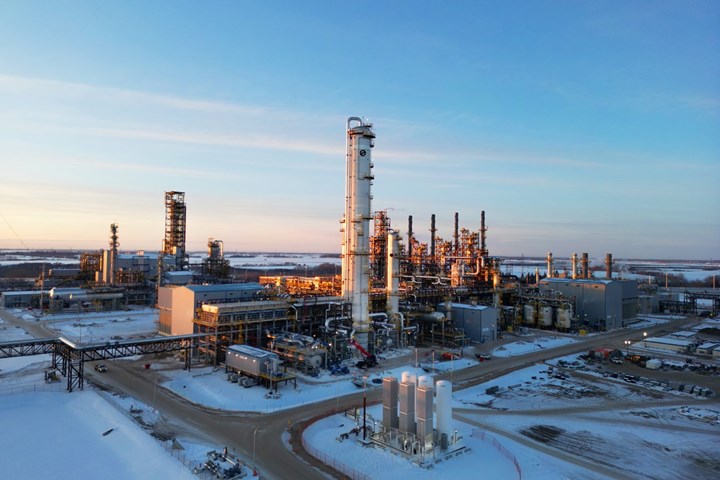Heartland Polymers Begins Integrated Production at PDH/PP Complex
The new PDH plant is now providing on-site feedstock for Norh America’s only integrated, single-site commercial PP production.

Heartland Polymers has successfully started-up its propane dehydrogenation (PDH) plant, which is now providing on-site propylene monomer feedstock for North America’s only integrated, single-site commercial PP production.
Heartland produced about 200 million lbs of PP in 2022 after the initial PP production began in July, followed by the PDH plant’s start-up in October 2022. Located in Alberta, Canada, east of the Rocky Mountains, Heartland is unique to the industry, producing both polymer grade propylene (PGP) feedstock and PP at a single site. Heartland’s PP plant and its cogeneration central utilities block (CUB) were commissioned earlier in 2022. Before the PDH plant entered into service, Heartland was producing PP with PGP feedstock from parent company Inter Pipeline’s NGL business, Canada’s only PGP producer prior to PDH entering into service. This alternate feed source enabled Heartland to begin PP production in late fall 2022 and remains a key aspect of Heartland’s reliability in addition to its optimal geographic location. Heartland is currently producing a range of homopolymers with a plan to add random copolymers to its production schedule later in 2023. Production currently focuses on serving the high demand for film, sheet extrusion, fibers and injection molding.
Said Heartland CEO Todd Karran, “Thanks to the dedication and hard work of our operations team, I am proud to report that our propane dehydrogenation plant has been providing a reliable onsite source of feedstock to our polypropylene production since the end of 2022. Heartland is responsibly producing and shipping polypropylene to customers daily, and we continue to focus on optimizing our service. As the new entrant to the market and one that brings Heartland’s promise of reliability, service and sustainability, there is high interest in our products. We expect it will continue to grow now that we have achieved commercial production.”
Related Content
-
Fundamentals of Polyethylene – Part 5: Metallocenes
How the development of new catalysts—notably metallocenes—paved the way for the development of material grades never before possible.
-
Fungi Makes Meal of Polypropylene
University of Sydney researchers identify two strains of fungi that can biodegrade hard to recycle plastics like PP.
-
Improving Twin-Screw Compounding of Reinforced Polyolefins
Compounders face a number of processing challenges when incorporating a high loading of low-bulk-density mineral filler into polyolefins. Here are some possible solutions.













